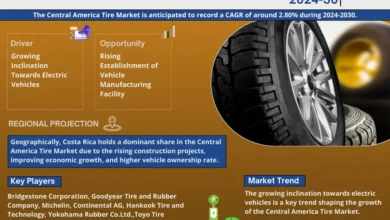Freight Companies: The Unsung Heroes of Global Commerce


In today’s interconnected world, the movement of goods across regions and continents is a complex, yet essential, component of global commerce. At the heart of this intricate web lies the freight industry, an often overlooked but vital sector that ensures products reach their destinations efficiently and reliably. This article delves into the critical role freight companies play in the global economy, highlighting their operations, challenges, and innovations.
The Backbone of Global Trade
Freight companies are the backbone of global trade, facilitating the transportation of goods by land, sea, and air. These companies manage everything from small parcel deliveries to large-scale industrial shipments, ensuring that products are available to consumers and businesses alike. Without the seamless operations of freight companies, the global supply chain would come to a standstill, impacting economies worldwide.
Diverse Freight Solutions
Freight companies offer a wide array of services tailored to meet the specific needs of different industries. These services include:
- Road Freight: Utilizing trucks and trailers, road freight is ideal for domestic and regional deliveries. It offers flexibility and door-to-door service, making it a popular choice for many businesses.
- Air Freight: For time-sensitive and high-value goods, air freight provides the fastest mode of transport. Though costlier, it is indispensable for industries that require rapid delivery.
- Sea Freight: Handling the majority of international trade, sea freight is cost-effective for large volumes of goods. It involves complex logistics, including container shipping, bulk shipping, and the use of ports and customs.
- Rail Freight: Combining speed and capacity, rail freight is an efficient option for long-distance land transport, particularly for bulk goods and heavy cargo.
Technological Advancements
The freight industry has embraced technological advancements to enhance efficiency and reliability. Key innovations include:
- Real-Time Tracking: Modern freight companies use GPS and RFID technologies to provide real-time tracking of shipments. This transparency helps businesses monitor their cargo and anticipate delivery times accurately.
- Automation and AI: From automated warehouses to AI-driven route optimization, technology is revolutionizing freight operations. These advancements reduce human error, cut costs, and improve delivery times.
- Blockchain: By providing a secure and transparent ledger, blockchain technology is improving the integrity and traceability of supply chains, reducing fraud and errors in documentation.
Environmental Sustainability
As the world grapples with climate change, freight companies are under increasing pressure to reduce their environmental impact. Many are adopting sustainable practices such as:
- Green Logistics: Implementing fuel-efficient vehicles, optimizing delivery routes, and using alternative fuels to reduce carbon emissions.
- Sustainable Packaging: Utilizing recyclable and biodegradable materials to minimize waste.
- Eco-Friendly Infrastructure: Investing in energy-efficient warehouses and facilities powered by renewable energy sources.
Challenges in the Freight Industry
Despite its critical role, the freight industry faces several challenges:
- Regulatory Compliance: Navigating the complex web of international regulations and customs requirements can be daunting and time-consuming.
- Fluctuating Fuel Costs: Volatile fuel prices directly impact operational costs, necessitating careful financial planning and fuel-efficient practices.
- Supply Chain Disruptions: Natural disasters, geopolitical tensions, and pandemics can cause significant disruptions, requiring freight companies to be resilient and adaptable.
- Labor Shortages: The industry often struggles with a shortage of skilled labor, particularly truck drivers and logistics professionals.
The Future of Freight
Looking ahead, the freight industry is poised for significant transformation. Key trends include:
- Digitization: Continued investment in digital technologies will enhance efficiency, transparency, and customer service.
- Sustainable Practices: As environmental concerns grow, freight companies will increasingly adopt green logistics solutions and invest in sustainable infrastructure.
- Globalization and Localization: Balancing global reach with localized services will be crucial, allowing freight companies to navigate international markets while meeting local needs.
Conclusion
Freight companies are indispensable to the functioning of the global economy, ensuring that goods move seamlessly across borders and within countries. Through technological innovation, sustainable practices, and resilience in the face of challenges, these companies continue to drive global commerce forward. As the industry evolves, freight companies will remain the unsung heroes, facilitating trade and contributing to economic growth worldwide.








